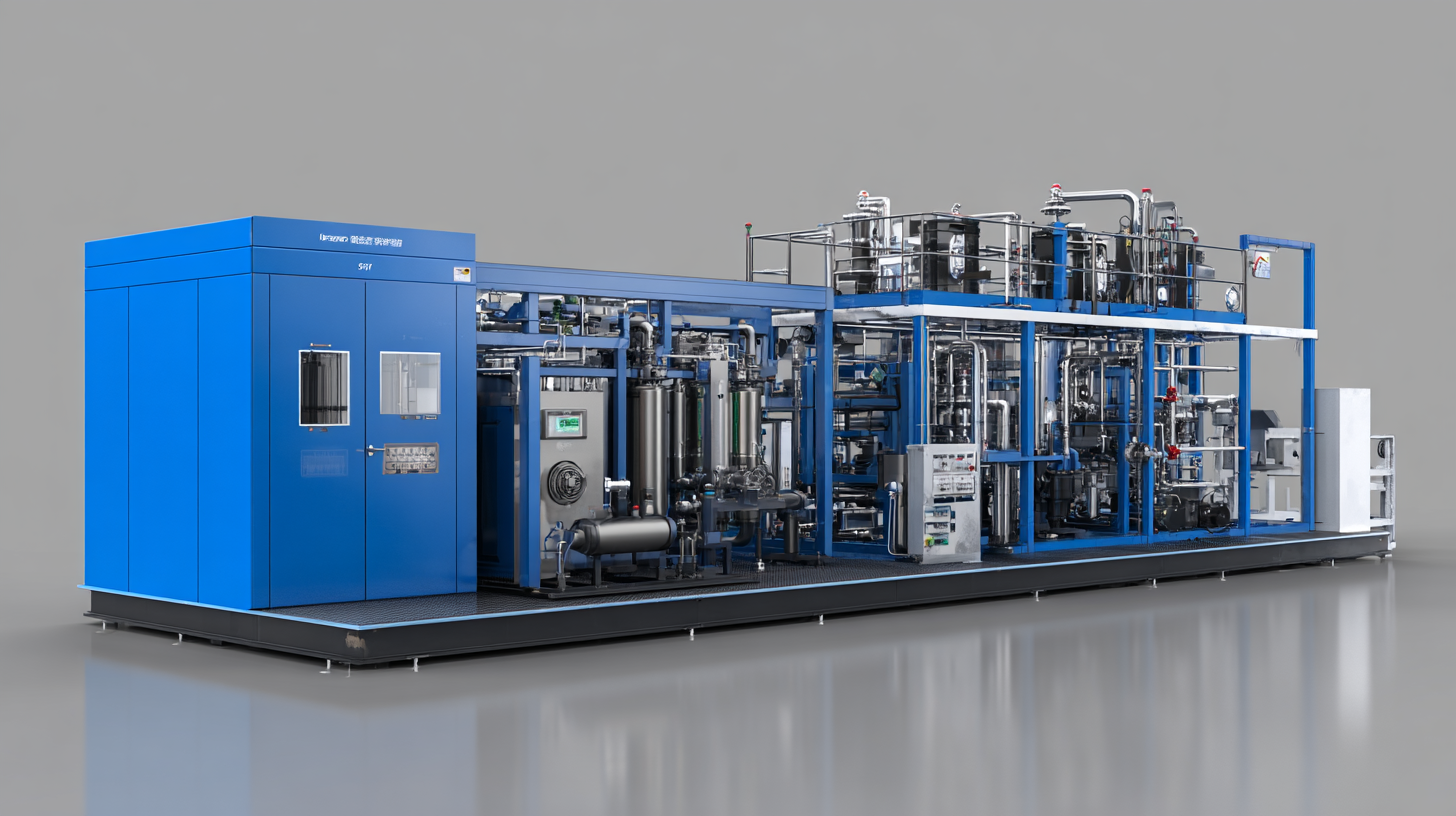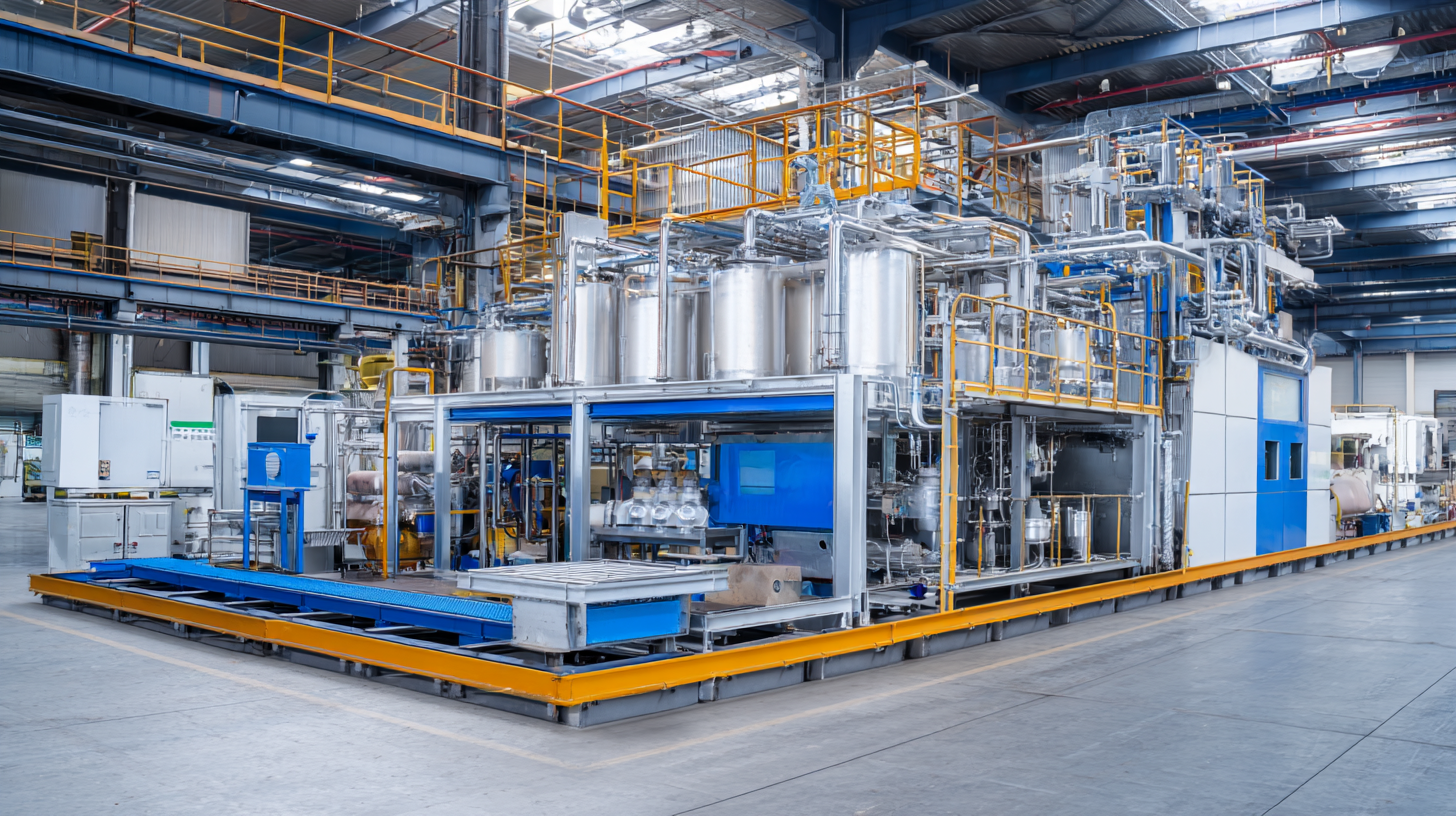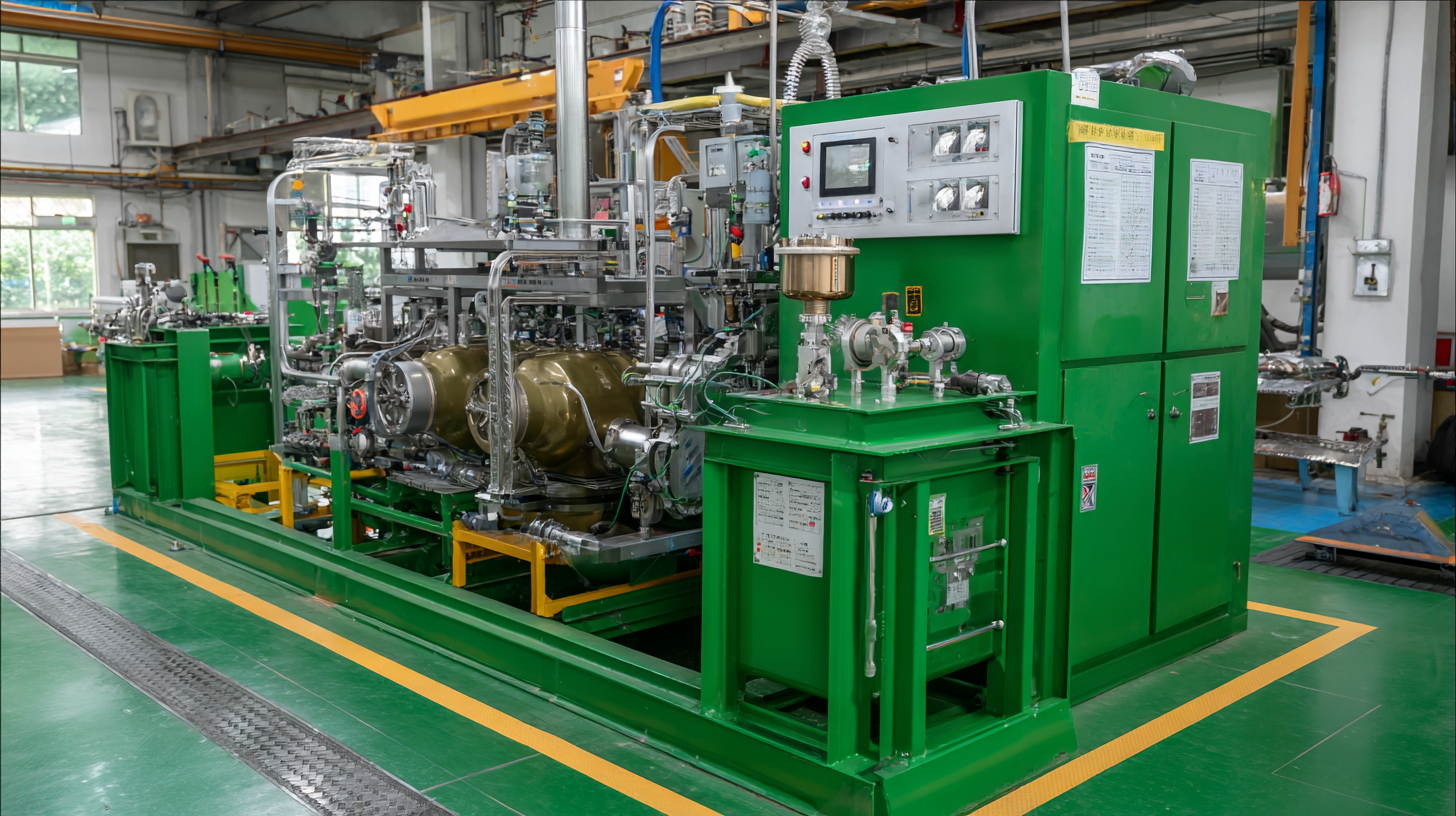
The hydrogen fuel industry is rapidly gaining momentum, with a projected market growth from $22.3 billion in 2020 to over $250 billion by 2027, as highlighted in a recent report by Allied Market Research. This surge emphasizes the critical need for advanced technologies that ensure efficiency and reliability in hydrogen production and application. Among these technologies, the Hydrogen Fuel Coating Machine stands out as an essential tool for global suppliers. This machine not only enhances the performance of hydrogen storage solutions but also improves safety and durability, thereby reinforcing supplier competitiveness in a dynamic market. As the demand for clean energy solutions escalates, understanding the significant role of the Hydrogen Fuel Coating Machine and its applications can provide industry professionals with a strategic advantage.

As the world shifts towards sustainable energy solutions, the demand for hydrogen fuel coating machines is surging in global markets. These machines play a crucial role in the production process, ensuring that hydrogen fuel cells are efficiently coated for optimal performance. With the rising concern over climate change and the push for cleaner energy sources, industries are increasingly investing in advanced technology that supports the transition to hydrogen fuel. This trend is not only driven by environmental regulations but also by the economic benefits of adopting hydrogen as a primary energy source.

Tips for global suppliers looking to harness this growing demand include investing in modern coating technologies that enhance production efficiency and improve product durability. Additionally, suppliers should focus on building partnerships with manufacturers who prioritize research and development in hydrogen technologies, ensuring that they stay ahead of the competition. By incorporating innovative practices and staying informed about market trends, suppliers can position themselves effectively in this evolving landscape.
Moreover, training personnel in the latest hydrogen coating techniques will enhance operational capabilities. Providing ongoing education programs can lead to higher productivity and better quality control, which are essential in meeting the increasing demands of the market. By adopting these strategies, suppliers can ensure they remain relevant and competitive in the fast-paced world of hydrogen fuel technology.
When it comes to hydrogen fuel coating machines, efficiency and reliability play a crucial role in meeting the demands of global suppliers. Facilities that utilize advanced coating technologies can significantly enhance their production capabilities, reducing both time and operational costs. Efficient hydrogen fuel coating machines ensure a consistent application of coatings, which not only boosts productivity but also improves the overall quality of the final product.

The global hydrogen economy is rapidly evolving, driven in part by strategic industry certifications that facilitate the smooth export and import of hydrogen fuel technology. As countries like the UK and those within the EU push forward with initiatives to decarbonize their energy systems, industries are recognizing the critical need for standardized processes and certifications. These certifications not only enhance product safety and reliability but also foster consumer trust and market acceptance, which are essential in promoting the international trade of hydrogen solutions.
Moreover, nations such as India and Singapore are embracing hydrogen technology as a pivotal element in their energy strategies. As India seeks to establish itself as a leader in green hydrogen production through its National Green Hydrogen Mission, and Singapore leverages hydrogen to diversify its energy sources, the importance of adhering to recognized industry standards becomes clear. These certifications can serve as a benchmark for quality and sustainability, enabling countries to attract investments and collaborate on hydrogen projects that meet global demands, thus positioning themselves favorably within the emerging hydrogen market.
When selecting a hydrogen fuel coating machine for your business, it's essential to consider several key factors to ensure you make an informed choice. First, evaluate the type of coatings required for your specific applications, especially if you are working with technologies like metallic bipolar plates used in fuel cells. The right machine should be optimized for these materials, improving durability and performance, which is vital in a growing market that is seeing increased demand for hydrogen fuel solutions.
Another critical aspect is the machine's productivity and efficiency. As companies are entering the hydrogen market with new developments, such as advancements in coating processes, your chosen equipment should enhance your production capabilities while meeting industry standards. Additionally, pay attention to the machine's adaptability, allowing for future upgrades or changes as hydrogen technology evolves. This strategic foresight will not only position your business competitively but also align with the industry's ongoing innovations, making it a valuable asset in your operations.
The implementation of hydrogen fuel coating solutions is critical for global suppliers, especially as the market continues to grow. Notably, the global market for ruthenium, a key component in hydrogen fuel cells, is projected to reach a staggering $667.1 million by 2024, with expectations of increasing to $903.2 million by 2032. This growth underscores the importance of advanced technologies that enhance the durability and efficiency of hydrogen fuel applications.
Moreover, the Proton Exchange Membrane Fuel Cell (PEMFC) market is on an impressive upward trajectory. From a valuation of $1.56 billion in 2020, it is anticipated to expand to approximately $22.74 billion by 2028, reflecting a compound annual growth rate (CAGR) that highlights the accelerating demand for clean energy solutions. Case studies of successful hydrogen fuel coating implementations worldwide demonstrate the vital role of innovative machinery in optimizing fuel cell performance, reducing production costs, and ultimately meeting the burgeoning global energy needs.